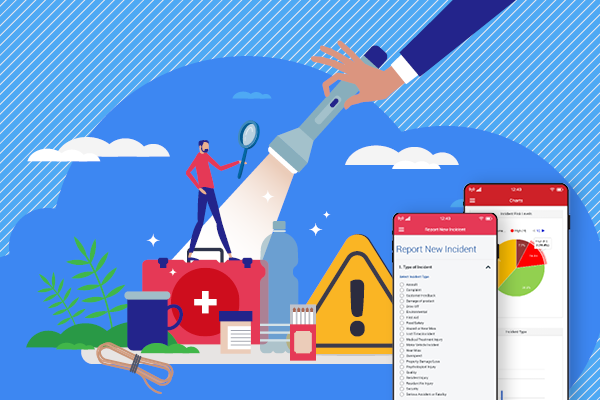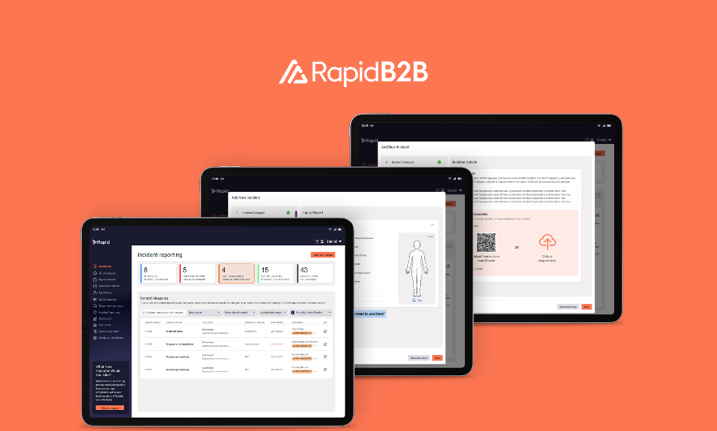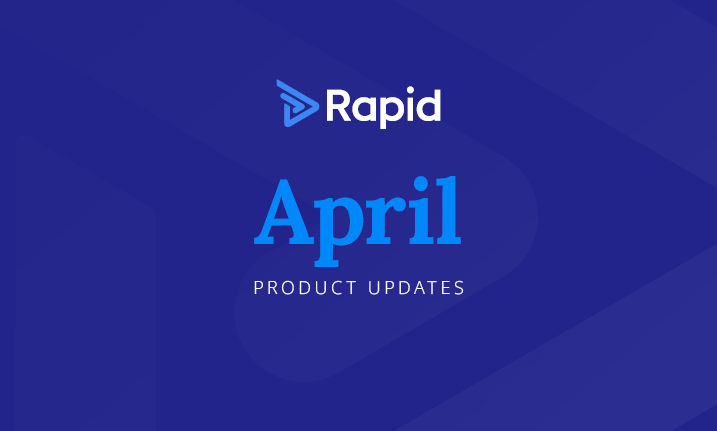

There’s no getting around it, an Incident Management System (IMS) is a crucial element of business management and workplace health and safety.
An incident management system gives you the tools needed to improve site safety by identifying, analysing, and mitigating workplace incidents and near misses.
An effective incident management system can be paper-based, electronic, or a hybrid system. It doesn’t really matter as long as it’s well thought out and importantly, well communicated to all involved.
Essential factors for an effective incident management system
How can you and your team ensure that you’re well-prepared to handle any incident that comes your way, given that good incident management relies on ongoing, ‘round-the-clock’ vigilance and preparation?
The following five factors play a critical part of a company’s incident management system and will help your organisation plan for all types of incidents.
1. Procedure and Policy
It stands to reason that even the most advanced incident management programs won’t be effective if you don’t communicate the key elements to everyone involved. That’s why one of the most important aspects of an incident management system is its accompanying policy.
There must be a clear system to be followed whenever an incident occurs (including a near miss) that includes incident reporting, investigation and analysis, corrective action, and incident closure.
2. A clear and straight-forward incident reporting system
An open workplace culture with easy-to-use reporting systems makes your employees more likely to report issues and near misses, which prevents incidents from escalating quickly and exposing your business to risks. No matter if it’s a paper-based register or cloud-based system like Rapid Incident Management you need a robust way to record incidents and near misses.
3. Organised emergency response
In the event of an incident, are all employees or contractors aware of the steps they should take? It is vital that the necessary steps are built into your policies for each incident type. With a system like Rapid Incident Reporting, the platform can be configured with tailored forms to capture the details about an incident type, steps on how to respond to the incident and automated workflows and notifications to assist your first responders and management team.
4. Mechanisms for thorough investigation and reporting
The success of any incident reporting system relies on being able to thoroughly investigate incidents – whereas an inefficient process leaves room for errors in the investigation and repeats of incidents in the future.
A system like Rapid Incident Reporting handles all this. For each incident type the system clearly defines several key incident elements such as:
- Who investigates the incident?
- What physical evidence needs to be provided?
- Will the investigators need to consult outside experts?
- Who is responsible for submitting the investigation’s findings to stakeholders?
- What follow-up actions will be put in place to prevent the incident from re-occurring?
5. Incident analysis and mitigation
The final essential factor in an incident management system focuses on prevention. You’ll want to identify why the incident occurred and what measures you must put in place to prevent the incident from happening again.
Incident analysis begins with creating a timeline of events that led to the incident, then conducting a root cause analysis to identify all the contributing factors of the incident and study historical incident data to find trends.
Using a system like Rapid Incident Reporting can help make this step more accurate, much faster, and easier.

How can an incident management system support your business?
An incident management system can support and benefit your business in a number of ways:
Improve safety culture, psychological safety, and trust
A well-designed emergency management system helps organisations to minimise the risks to employees, clients, and contractors. A good policy can help foster a ‘safety first’ culture, where a top-down approach to safety helps to build psychological safety and trust. This can in turn improve productivity and bottom-line results.
Faster response to emergencies
Time is precious when an incident does occur, therefore your incident management system will help to facilitate faster responses to emergencies.
Rapid Incident Reporting gives you an online solution where staff and visitors can report an incident or injury in real-time from any device. Gain insight from incident reports about key areas of concern related to the safety record of your business.
Save time through efficient automations
With an online system you’ll be able to receive and send automatic notifications to relevant personnel regarding the incident investigation. For example, you can customise notifications for loss of time or injuries to a specific manager, department, or site.
Improve compliance and mitigate risks
By having a central incident register and incident management system, you’ll be able to meet compliance requirements with no stress. Be ready for any safety inspections with a customised system for capturing data and analysis.

What features are essential to a robust incident reporting system?
Switching from legacy systems to a cloud-based incident management system like Rapid Incident Reporting can pose some challenges.
To make the transition easier, we recommend looking for the following features:
Mobile accessibility
In today’s workplace, mobile abilities are crucial, and therefore you need mobile accessibility to enable everyone on site to report an incident or near miss quickly and easily, by capturing relevant information straight from their devices.
Automated workflows
Having the ability to configure an automation to your workflow means you can notify the right people based on incident type, location, and severity which not only saves time and resources but will also improve the response time.
Notifications
Gathering information efficiently is important for incident management, however, data is only useful when seen by decision-makers and your safety personnel. Rapid Incident Reporting will alert staff to incidents and near misses as well as investigations, corrective actions, and follow-ups. This will allow your team to focus on their other responsibilities and duties.
Reporting capabilities
With a centralised system to capture data and transform it into meaningful reports, you can help protect your personnel and support them in case of an incident. Automated summary reports can be scheduled to send to your management team. In addition, standard safety performance reports are available to present a wide range of safety performance insights across different sites, and specific areas of your company.
Why Rapid offers the best incident management system
Workplace incidents happen, no matter your industry or company size. A well-thought-out incident management system will help to keep incidents and the damage they do to a minimum.
To discover how Rapid Incident Reporting can help your organisation improve site safety, request a demo today! https://www.rapidglobal.com/request-demo/







